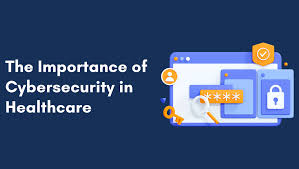The Importance of Cybersecurity in Healthcare Systems in 2025
In 2025, healthcare systems are more connected than ever. With the rapid growth of telemedicine, electronic health records (EHRs), wearable health tech, and AI-driven diagnostics, the industry is undergoing a powerful digital transformation. While this progress improves patient care and efficiency, it also introduces significant cybersecurity risks.
At i4 Tech Integrated Services, we recognize that protecting sensitive medical data is not just a compliance issue—it’s a matter of patient safety and public trust. In this blog post, we explore why cybersecurity in healthcare has never been more critical than it is in 2025.
🏥 Why Is Healthcare a Prime Target for Cyberattacks?
Healthcare data is a goldmine for cybercriminals. Unlike credit card information, which can be changed quickly, health records contain permanent personal details such as medical history, Social Security numbers, insurance data, and even biometric information. These can be used for identity theft, insurance fraud, and blackmail.
Common cyber threats targeting healthcare systems in 2025 include:
- Ransomware Attacks – Locking down hospital systems and demanding ransom to restore access.
- Phishing Attacks – Tricking staff into providing credentials or installing malware.
- Data Breaches – Exploiting system vulnerabilities to steal sensitive patient data.
- IoT Exploits – Targeting connected medical devices that lack proper security.
🔐 The Consequences of Poor Cybersecurity in Healthcare
A cyberattack on a hospital or clinic in 2025 can have devastating consequences:
- Compromised Patient Safety: Hackers can alter or lock access to medical records, delay surgeries, or interfere with life-saving equipment.
- Loss of Trust: Patients lose confidence in healthcare providers who fail to protect their personal data.
- Financial Damage: From ransom payments to legal fees, regulatory fines, and reputational harm, the costs of a breach can be immense.
- Legal & Compliance Risks: Healthcare providers must comply with laws like HIPAA, GDPR, or national data protection laws—or face serious penalties.
🛡️ Key Cybersecurity Strategies for Healthcare Providers
To defend against growing cyber threats, healthcare organizations must adopt a proactive cybersecurity approach. Here are essential practices:
1. Data Encryption & Secure Access
All patient data, whether stored or in transit, must be encrypted. Access should be limited to authorized personnel using role-based permissions.
2. Multi-Factor Authentication (MFA)
Healthcare staff should use MFA for accessing systems, especially when working remotely or using mobile devices.
3. Regular Software Updates & Patch Management
Outdated software is a major security risk. Keeping systems and applications updated is crucial for closing known vulnerabilities.
4. Staff Training & Awareness
Human error remains a top cause of breaches. Regular cybersecurity awareness training helps staff recognize phishing emails, social engineering, and other scams.
5. Backup and Disaster Recovery Plans
Ensure critical data is regularly backed up and a disaster recovery plan is in place in case of ransomware attacks or outages.
6. Secure Medical IoT Devices
Connected medical devices must be secured with proper firmware updates, network segmentation, and endpoint protection.
🤝 How i4 Tech Integrated Services Can Help
At i4 Tech Integrated Services, we offer tailored cybersecurity solutions for healthcare providers to help secure their digital infrastructure. Our services include:
- Cyber risk assessments for hospitals and clinics
- Data encryption and compliance solutions
- Staff training programs on cybersecurity best practices
- 24/7 system monitoring and threat detection
- Incident response planning and recovery support
We help healthcare organizations stay compliant, reduce risks, and build trust with their patients through strong cybersecurity measures.
🧠 Final Thoughts
Cybersecurity is no longer a “nice to have” for the healthcare industry—it’s a critical necessity. As the digital landscape of healthcare continues to grow in 2025, so does the responsibility to protect sensitive data and ensure patient safety.
By prioritizing cybersecurity today, we can build a healthier, safer, and more resilient healthcare system for tomorrow.
Need to secure your healthcare system?
Contact i4 Tech Integrated Services today to discuss customized cybersecurity solutions for your clinic, hospital, or healthtech platform.


